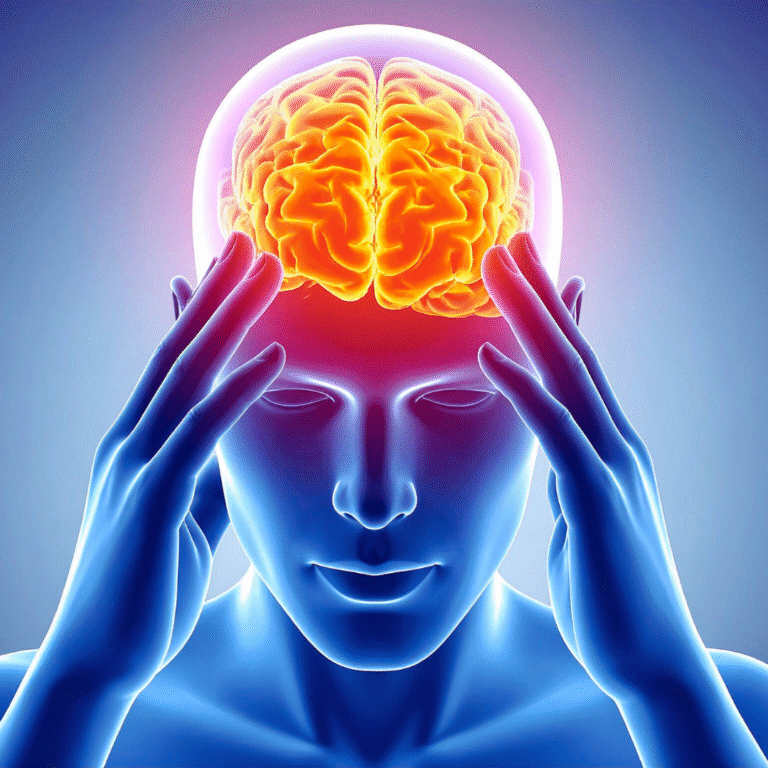The connection between gut health and mental well-being is becoming increasingly recognised in contemporary research. Probiotics and prebiotics play a pivotal role in maintaining a balanced microbiota, which can positively influence mental health through the gut-brain axis. Studies demonstrate that a healthy gut can significantly improve mood and reduce symptoms of anxiety and depression.
Probiotics, which are beneficial live bacteria, and prebiotics, the substances that nourish these bacteria, work together to enhance digestive health and support cognitive function. This interaction suggests that what individuals consume can directly impact their mental state, as a thriving microbiome encourages the production of neurotransmitters linked to mood regulation. Recognising the importance of gut microbiota is essential in fostering not only physical health but also psychological resilience. The potential benefits of incorporating probiotics and prebiotics into daily routines may offer a natural avenue for improving mental well-being.
Understanding the Gut-Brain Axis
The gut-brain axis is a complex and bidirectional communication system that connects the gastrointestinal tract and the brain. It plays a vital role in mental well-being through various mechanisms involving gut microbiota and neural pathways.
Role of Gut Microbiota in Mental Well-Being
The gut microbiota consists of trillions of microorganisms that inhabit the intestines. These microbes produce metabolites, such as short-chain fatty acids (SCFAs), which can influence brain function and mental health. SCFAs, like butyrate, have anti-inflammatory properties and may enhance mood.
Certain gut microbiota have also been linked to the production of neurotransmitters, including serotonin. It is estimated that about 90% of the body’s serotonin is produced in the gut. An imbalance in gut microbiota can lead to mental health issues, highlighting the importance of maintaining a healthy gut flora for psychological resilience.
Communication Pathways Between the Gut and Brain
Communication between the gut and brain occurs through several pathways, including the vagus nerve. This nerve serves as a significant conduit for transmitting signals related to gut function and emotional states.
Additionally, the gut microbiota can influence the brain through the production of neuroactive substances. These substances can affect mood, behaviour, and cognitive functions. Microbiota alterations may lead to changes in the signalling of the hypothalamic-pituitary-adrenal (HPA) axis, which is crucial for stress response and mental health regulation.
Impact of Probiotics and Prebiotics on Psychological Disorders
Probiotics and prebiotics have garnered attention for their potential role in alleviating symptoms of psychological disorders. Research indicates that these substances may influence mental health by modulating gut microbiota, which in turn may affect brain activity and behaviour.
Clinical Trials and Systematic Reviews
Numerous clinical trials have explored the connection between probiotics and psychological well-being. For instance, studies have shown that individuals with depression and anxiety may experience relief when supplemented with specific probiotics. A systematic review analysing multiple trials found significant improvements in depressive symptoms among the intervention groups compared to placebo groups. Other meta-analyses suggest that synbiotics, which combine probiotics and prebiotics, may be more effective in reducing mood disorders. This suggests that both components together can offer adjunctive treatment for those receiving psychiatric care.
Probiotic Supplementation and Mental Disorders
Probiotic supplementation has demonstrated potential anxiolytic effects in various studies. Notably, certain strains, such as Lactobacillus and Bifidobacterium, have been linked to reduced anxiety and stress levels.
Additionally, research indicates that probiotics might serve as an adjunct to conventional antidepressant medications. In trials, participants taking probiotics alongside standard psychiatric treatments reported lower levels of anxiety and depression. These findings imply that probiotics could play a significant role in the management of mood disorders, highlighting their relevance in contemporary psychiatric treatment paradigms.
Probiotics, Prebiotics, and Mental Health Conditions
Recent research indicates significant connections between probiotics, prebiotics, and various mental health conditions. Their interaction with gut microbiota may influence mood and cognitive function, offering potential therapeutic pathways for addressing mental health issues.
Effects on Mood and Cognitive Function
Probiotics and prebiotics can impact mood and cognitive function through the gut-brain axis. By supporting a balanced gut microbiome, these substances may enhance levels of neurotransmitters such as serotonin and dopamine. Studies show that individuals with major depressive disorder may benefit from probiotics, reflecting improvements in anxiety and depressive symptoms. For example, a daily intake of specific probiotic strains has been associated with reduced cortisol levels, which are linked to stress.
Moreover, prebiotics can foster beneficial bacterial growth, potentially improving cognitive function. They stimulate the production of brain-derived neurotrophic factor (BDNF), which plays a vital role in neuronal health and plasticity. This process could be key for individuals experiencing cognitive decline, particularly in Alzheimer’s disease.
Addressing Gut Dysbiosis in Psychiatric Conditions
Gut dysbiosis, an imbalance in gut microbiota, has been linked to various psychiatric conditions, including schizophrenia and autism spectrum disorders. Probiotics can help restore a healthy microbiome, thus mitigating symptoms associated with these disorders. Research indicates that specific probiotic strains can lower inflammation, a common factor in mental health disorders. These strains influence the production of gamma-aminobutyric acid (GABA), which may help regulate mood and anxiety.
Furthermore, integrating prebiotics into the diet can support the effects of probiotics, enhancing their benefits for mental well-being. By reducing gut permeability and inflammation, they may protect against mood disorders, providing a holistic approach to mental health care.
Therapeutic Applications and Future Research
The therapeutic applications of probiotics and prebiotics in mental well-being present promising avenues for enhancing psychological conditions. Future research directions aim to establish clinical efficacy, explore underlying mechanisms, and refine treatment protocols.
Potential for Integrating Probiotics and Prebiotics in Treatment
Integrating probiotics and prebiotics into therapeutic interventions could significantly impact various mental health conditions, including generalized anxiety disorder and bipolar disorders. Probiotic supplementation has shown potential in modulating the immune system’s response, reducing pro-inflammatory cytokines associated with these health conditions.
Chronic inflammation is often linked to cognitive decline, including Alzheimer’s disease. Dietary supplements that enhance gut microbiota health may improve psychological well-being by positively influencing brain function and emotional regulation. The tolerability of these supplements adds to their attractiveness as alternative treatment options. Established biomarkers and clinical evidence underscore their therapeutic potential, suggesting these interventions could complement traditional therapies effectively.
Directions for Future Clinical Studies
Future clinical studies should focus on assessing the long-term therapeutic effects of probiotics and prebiotics on mental health. Researchers need to explore different treatment durations to determine optimal protocols and effectiveness. Investigating the epigenetic interactions between gut microbiota and mental health may yield insights into tailored therapies based on genetics and lifestyle factors.
Rigorous trials are necessary to validate these findings, emphasising controlled environments and diverse participant profiles. The relationship between gut health and mental well-being will benefit from research centred on specific biomarkers that signal therapeutic success. Combined efforts in these areas can contribute to a deeper understanding of probiotics and prebiotics in mental health treatment strategies.




